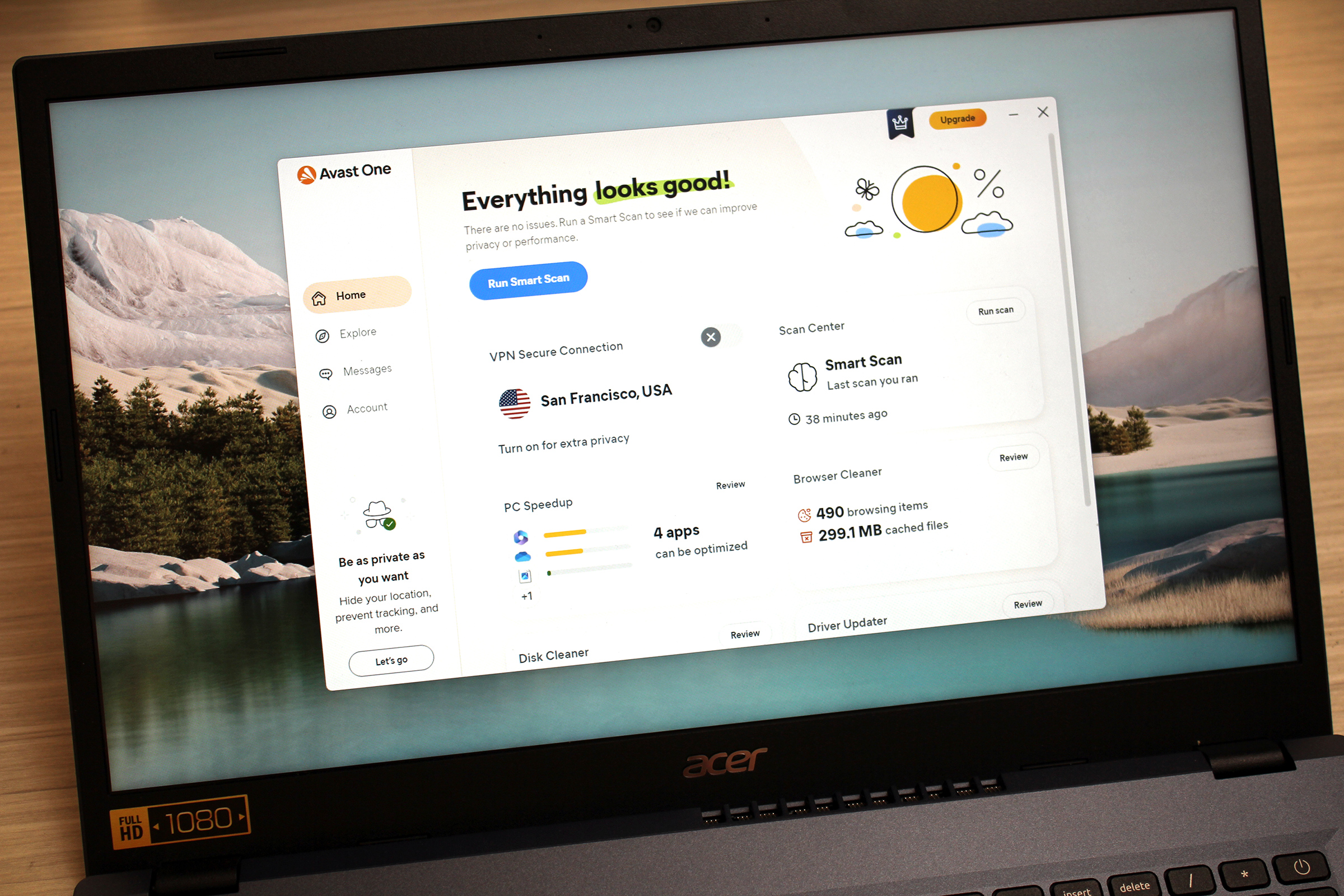Antivirus software is an essential piece of protection on any Windows PC. On an internet where malware is only becoming more and more profitable for organized crime, you don’t want to be without a good antivirus program.
But there are a lot of myths floating around out there about antivirus software. Let’s bust them.
Myth: You need to install antivirus on Windows
You don’t have to install antivirus software on Windows because Windows already comes with antivirus software. In fact, Windows has had built-in antivirus software since Windows 8, and it’s still included on Windows 10 and Windows 11 today. The built-in Microsoft Defender antivirus is part of the Windows Security suite of tools. It’s as basic as it comes, but completely free and runs automatically in the background, even if you never think about or install antivirus software.
Now, you may prefer another antivirus — other antiviruses have extra tools, protection features, and options, and they use different detection engines. But the good news is that every Windows PC has a baseline antivirus package. We’re long past the days of Windows 7, Windows Vista, and Windows XP nagging you to install antivirus software when you set up a new PC.
Microsoft’s antivirus gets out of the way when it needs to, automatically disabling its automatic background scanning features if you choose to install a third-party antivirus. You just don’t have to think about it.
Myth: Only Windows is vulnerable to malware
Malware (including viruses, Trojans, worms, rootkits, ransomware, and all kinds of other appalling things) is a problem on all platforms.
Yes, even Linux is vulnerable to malware threats — just check out the recent XZ Utils backdoor saga that nearly saw a rootkit slipped into a critical piece of open-source software. Or, consider the Linux distribution Ubuntu labeling a malicious app that stole people’s cryptocurrency as “safe.” Linux malware often targets server software, as Linux is so much more popular in data centers than on the desktop.
I’m not trying to single out Linux here! The reality is that malicious software is a problem on all platforms — even Linux. No platform is above the fray.
People may say Macs don’t need antivirus, but Apple actually has an antivirus-style system built into macOS. It’s named XProtect. Various companies also make antivirus programs for Macs.
Further reading: Windows includes built-in ransomware protections. Here’s how to turn it on
Myth: Antivirus will slow down your PC dramatically
Antivirus software runs in the background, scanning files when you download them and before you open them. Before an application launches, your antivirus gives it a quick check and warns you if it appears to be malicious.
Now, obviously this will use some system resources. Your PC is doing a bit of extra work. But we’re not in the ‘90s or early ‘00s anymore. Back then, PCs were much slower. Antivirus software just felt so heavy to use, and you could feel it slowing down your PC at times. I remember it well! But that was long ago.
Modern antivirus applications shouldn’t slow your PC down in a noticeable way. If it takes 2 percent longer to launch an application, will you notice? Not really. Those shouldn’t be constant slowdowns, either — they should occur when you launch an application and the antivirus is checking it out, not all the time while you do things on your PC.
Avast one's virus scans have no real affect on system performance
Plus, unless you’ve gone out of your way to disable its background scanning (I recommend against it!), Microsoft’s Defender antivirus is already running in the background on your PC, scanning for malware. When we benchmark PCs here at PCWorld, we leave the standard Defender antivirus running. So, even if you chose to swap out the built-in Defender antivirus for another antivirus, you’d just be trading one antivirus for another — not adding an extra performance cost on top.
In some cases, antivirus software may slow down a workload: If you’re compiling software, for example, and you have a folder where a large number of files are being created, you may want to simply “exclude” such a folder from your antivirus’s scanning. That’s the most you should need to do.
When antiviruses perform their heavy full-system scans, that will definitely slow things down further while they’re running. But those scans are usually scheduled to happen while you’re not using your PC. You shouldn’t notice them at all.
Myth: You have to run antivirus software manually
There’s no need to regularly open your antivirus program, click the “Scan” button, and wait for the results. Your antivirus is automatically scanning in the background to protect you, checking files when you download and launch them. It’s also performing this type of comprehensive system scan on a schedule — in the background — when you aren’t using your PC. Your antivirus will let you know if it finds as problem.
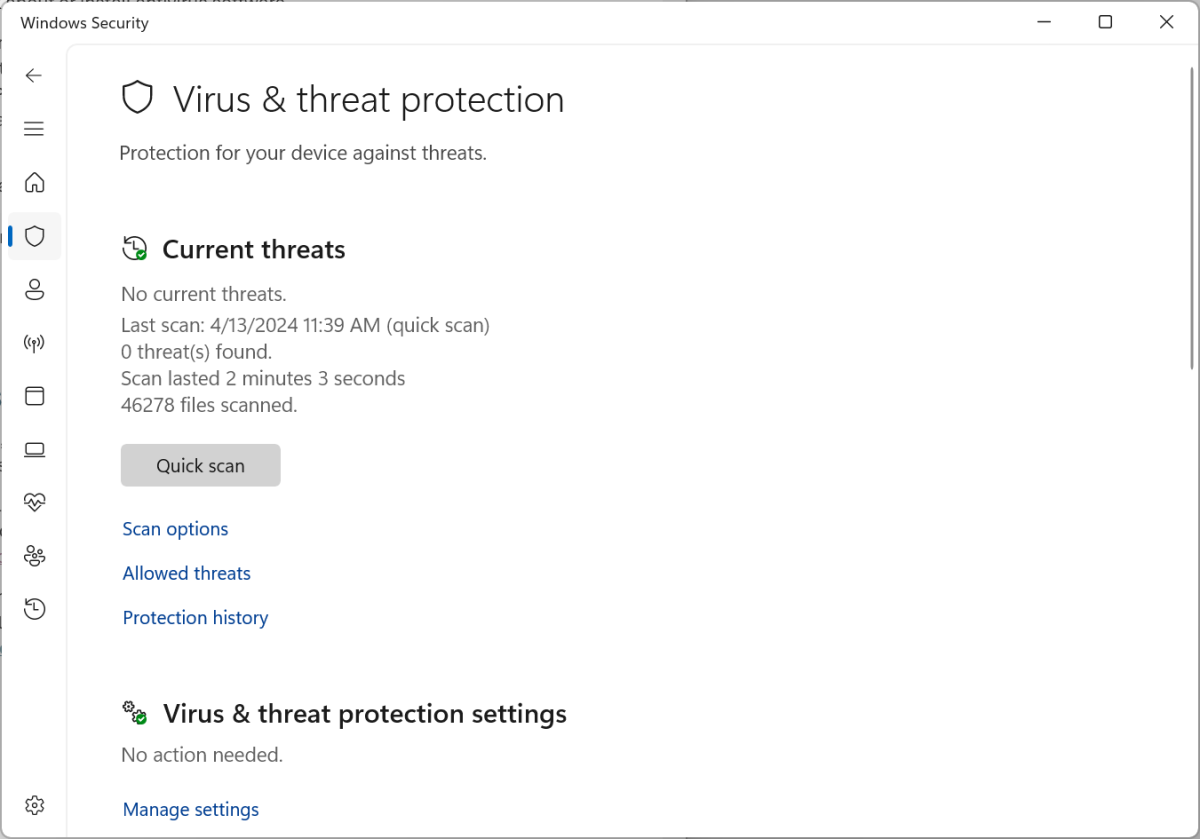
Windows Security is always running in the background on a modern Windows PC — unless you install another antivirus.
Chris Hoffman/IDG
Save yourself the trouble and avoid the time-consuming manual scans — unless you’re concerned your system might have malware and you want to check all the files on your PC’s storage right now. Scanning like this is just one of many outdated security practices you no longer need to follow.
Myth: Antivirus will protect you from all threats
Antivirus software isn’t completely perfect. Now, I know this is sort of an obvious statement. But I’ve seen many people act like antivirus will provide them perfect protection and run into trouble.
You should think of your antivirus software as a last line of defense. If all your normal security precautions fail or an application you use has a dangerous zero-day flaw that lets an attacker gain access to your PC, your antivirus program is there to pick up the slack and stop malware from running.
the best overall av protects against many other threats as well
Norton 360 Deluxe
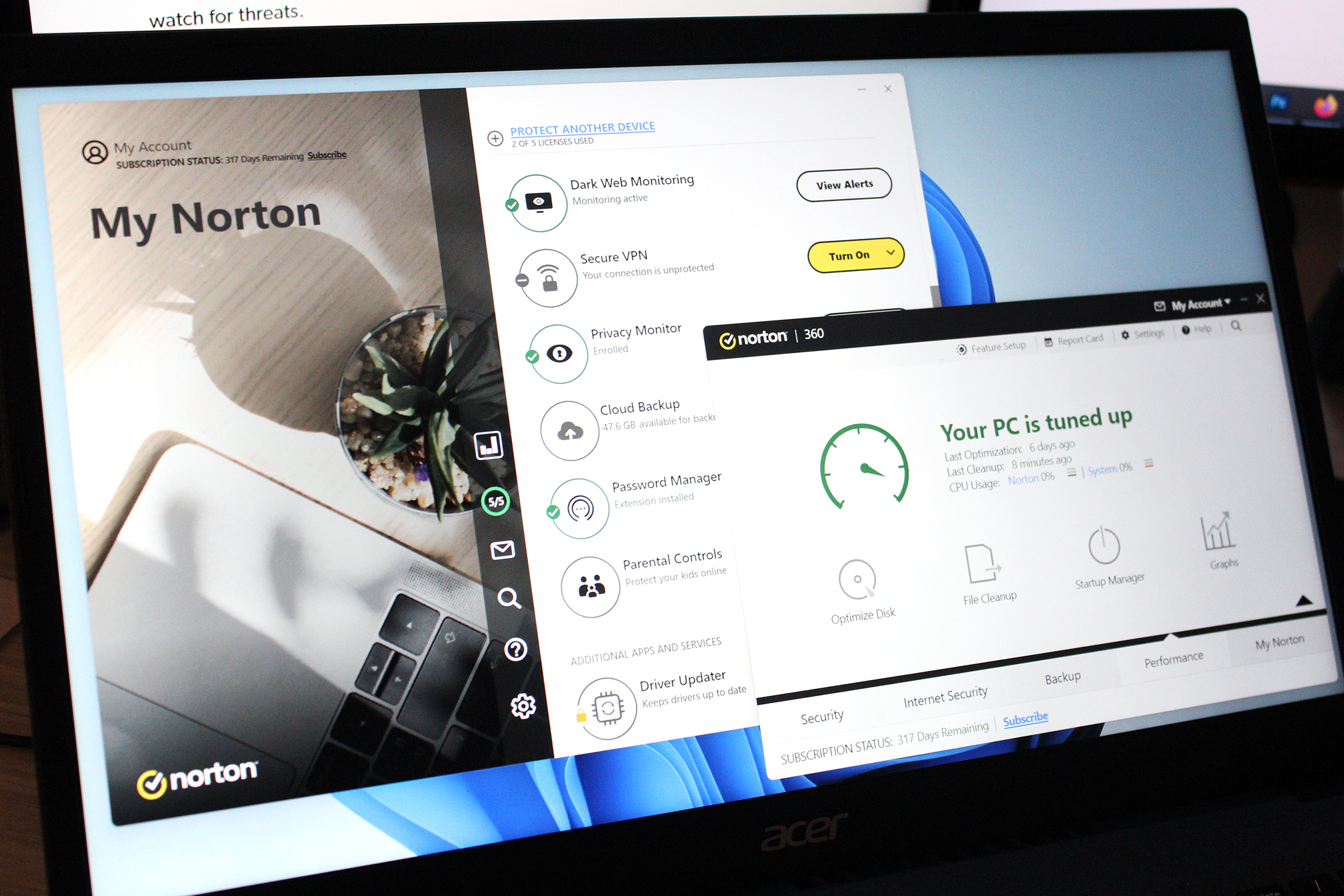
Login to add comment
Other posts in this group

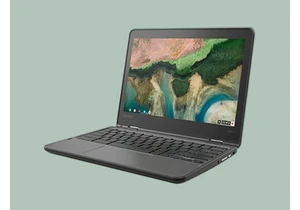
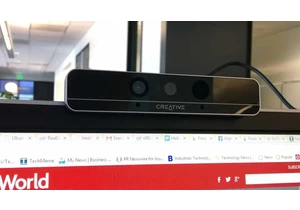
RealSense, a depth-camera technology that basically disappeared withi

These days, the pre-leaving checklist goes: “phone, keys, wallet, pow
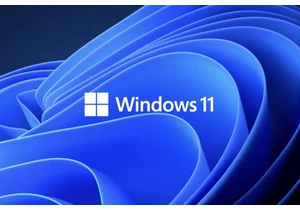
One of the most frustrating things about owning a Windows PC is when

Every now and then, you hear strange stories of people trying to tric
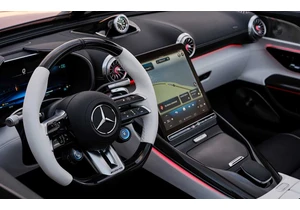
Cars are computers too, especially any car made in the last decade or

